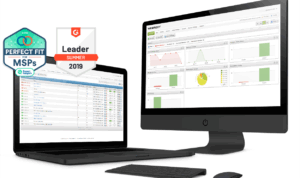Legal accounting software has revolutionized the way legal firms manage their finances, offering a blend of efficiency and accuracy that is essential in today’s fast-paced legal environment. This software not only simplifies billing and expense tracking but also ensures compliance with legal regulations, making it an invaluable tool for law practitioners.
As the demand for transparency and efficiency increases, legal accounting software provides features such as trust accounting, time tracking, and reporting, which cater specifically to the needs of legal professionals. By automating complex processes, this software allows attorneys to focus more on their legal work rather than getting bogged down in financial details.
Time management is a skill that can significantly impact both personal and professional aspects of our lives. In today’s fast-paced world, the ability to effectively manage time is crucial for achieving goals, reducing stress, and increasing productivity. Many individuals struggle with time management due to a lack of organization, poor planning, or simply the overwhelming demands of life. However, with the right strategies, anyone can improve their time management skills and enjoy the benefits that come with it.

Understanding Time Management
At its core, time management is about making conscious decisions on how to allocate your time to various tasks and responsibilities. It involves setting priorities, creating schedules, and allowing for flexibility to adapt to changes. Effective time management enables individuals to work smarter—not harder—by focusing on tasks that yield the most significant results.
Benefits of Time Management
- Increased Productivity: When you manage your time well, you can accomplish more in a shorter amount of time. This increased efficiency leads to a greater sense of achievement.
- Reduced Stress: Good time management reduces stress levels by helping you stay organized and prepared for upcoming tasks. This leads to a calmer and more focused mindset.
- Improved Work-Life Balance: With effective time management, you can allocate time for both work and personal life, ensuring that neither side feels neglected.
- Better Decision Making: When you have a clear understanding of how you spend your time, you can make more informed decisions about where to invest your efforts.
- Enhanced Opportunities: By managing your time well, you can take advantage of opportunities that may arise, whether they are personal or professional.
Key Strategies for Effective Time Management
To harness the benefits of time management, consider these proven strategies:
1. Set Clear Goals
Defining clear and attainable goals is the first step in effective time management. Goals provide direction and purpose, making it easier to prioritize tasks. Use the SMART criteria—Specific, Measurable, Achievable, Relevant, and Time-bound—to create goals that guide your actions.
2. Prioritize Tasks
Once your goals are set, it’s essential to prioritize tasks based on their importance and urgency. The Eisenhower Matrix, which categorizes tasks into four quadrants (urgent and important, important but not urgent, urgent but not important, and neither urgent nor important), is a useful tool for prioritization.
3. Create a Schedule
Developing a daily or weekly schedule can help you allocate time effectively to different tasks. Use tools such as calendars, planners, or digital apps to visualize your commitments. The Pomodoro Technique, which involves working in focused bursts followed by short breaks, can also enhance concentration and efficiency.
4. Limit Distractions
In today’s digital age, distractions are everywhere. Identify what commonly distracts you—whether it’s social media, emails, or noisy environments—and take steps to minimize these interruptions. Create a dedicated workspace, turn off notifications, and set boundaries with others during focused work periods.
5. Learn to Say No
Sometimes, achieving effective time management requires saying no to requests that do not align with your goals or priorities. This can be difficult, especially if you’re a people-pleaser, but it’s essential to protect your time and energy.
6. Review and Reflect
Regularly reviewing your progress towards your goals allows you to assess what’s working and what isn’t. Reflect on your accomplishments and setbacks, and adjust your strategies accordingly. This practice not only improves your time management skills but also fosters personal growth.
Time Management in Professional Settings
In the workplace, effective time management can lead to a more productive team environment. Managers and leaders play a vital role in fostering a culture of time management by setting clear expectations, encouraging goal-setting, and providing resources for employees to manage their time effectively.

Encouraging Team Collaboration
Collaboration among team members can enhance time management by allowing individuals to delegate tasks and share responsibilities. Tools like project management software can streamline collaboration and ensure that everyone is on the same page regarding deadlines and deliverables.

Implementing Flexible Work Policies
With the rise of remote work, flexible schedules have become more common. Allowing employees to choose their working hours can lead to increased job satisfaction and productivity, as individuals can work during their most productive hours.
Time Management in Personal Life
Time management isn’t just vital for career success; it’s equally important in our personal lives. Balancing family, hobbies, social engagements, and self-care requires thoughtful planning.
Making Time for Self-Care
Incorporating self-care into your schedule is essential for maintaining overall well-being. Whether it’s exercise, meditation, or pursuing a hobby, allocating time for activities that recharge you can greatly enhance your quality of life.
Building Routines
Establishing daily routines can help you manage your time more effectively. Morning and evening routines set the tone for your day and help you wind down at night, ensuring you make the most of your time both at work and home.
Conclusion
In conclusion, effective time management is a crucial skill that can elevate both personal and professional aspects of life. By setting clear goals, prioritizing tasks, creating schedules, and limiting distractions, anyone can improve their time management abilities. As you incorporate these strategies into your daily routine, you will likely experience increased productivity, reduced stress, and an overall better quality of life.
Remember, time is one of the most valuable resources we have, and managing it effectively can lead to remarkable outcomes.
Questions and Answers
What features should I look for in legal accounting software?
Look for features like time tracking, billing, trust accounting, reporting, and integration with other legal tools.
Is legal accounting software suitable for small law firms?
Yes, many legal accounting software solutions are designed to meet the needs of small law firms, providing scalable features.
How does legal accounting software help with compliance?
It helps ensure compliance by automating processes and maintaining accurate records, reducing the risk of errors.
Can legal accounting software integrate with other systems?
Many platforms offer integration with practice management software, document management systems, and other financial tools.
Is training necessary to use legal accounting software?
While many software options are user-friendly, some training may be beneficial to utilize all features effectively.




























